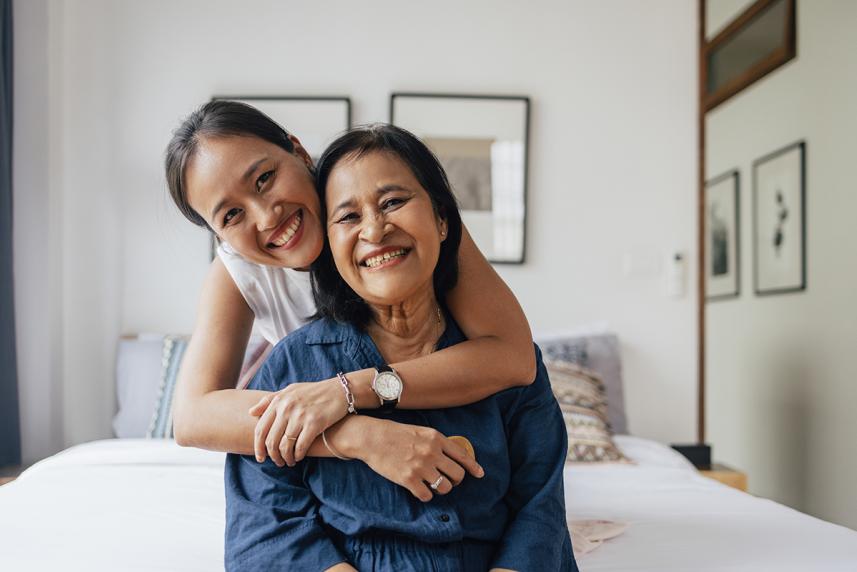
The Blue KC Care Management app makes it easy to get your questions about cancer answered. Download it now and use the access code kclinksupport to connect.
Finding out you have cancer can be scary. These tips will help you handle it with a clear head.

A breast cancer diagnosis might be overwhelming at first. But even if it feels that way right now, there can be a lot to be hopeful about. Breast cancer treatment has come a long way in the last few decades. Cancers are being found earlier through screening, and treatments have improved, says the American Cancer Society (ACS).
“When detected at an early stage, the cure rate of breast cancer exceeds 90% for most patients,” says oncologist Timothy Pluard, M.D. He’s the medical director at Saint Luke’s Koontz Center for Advanced Breast Cancer in Kansas City, Missouri. “So, there’s reason to be optimistic, even after the diagnosis.”
Here’s how to take the first steps forward in your treatment journey.
You may feel comfort knowing that many women have gone through what you’re dealing with right now.
Consider reaching out to a cancer support group after a breast cancer diagnosis. Talking to cancer survivors or current patients can help prepare you for what may come next. Here are some ways you can find cancer support groups in your area:

The Blue KC Care Management app makes it easy to get your questions about cancer answered. Download it now and use the access code kclinksupport to connect.
Breast cancer diagnosis and treatment aren’t just physical-health issues. They are mentally challenging too. It’s natural to feel extra stress and anxiety right now.
It’s important to honor how you’re feeling. There are probably going to be some rough days, but you can get through them. Talking with a family member or close friend can help. Or ask your doctor to connect you with a therapist who can help you manage your worries.
After you get the news that you will need cancer treatment, you may wonder whether another doctor would have different advice. “If you have unanswered questions or want to make sure you’re getting the right treatment, that’s when you would benefit from a second opinion,” says Dr. Pluard.
Even if the other doctor tells you the same news, talking to another medical expert can help you feel more confident about your diagnosis and treatment plan.
Some other reasons to get a second opinion, according to the ACS: Your doctor gives you several treatment options, or you think there might be another treatment available.
Focus on self-care options that can help you manage your emotions. Reducing stress can also improve your treatment outcome. Here are some strategies that can help:
Knowing all you can about common breast cancer treatments better prepares you for what’s next. Your doctor is one trusted source. Ask them for more information about your type of cancer and possible treatments. You can also do your own research online.
One tip from experts: Don’t search the internet for answers about breast cancer during sleepless nights.
Instead, educate yourself when you’re rested. “There’s a ton of information online, but it’s important to identify what’s reliable and proven information, so it will be beneficial,” says Dr. Pluard. Here are online resources you can count on:
One of the biggest challenges when you’re newly diagnosed is the unknown, says Dr. Pluard. “Everybody’s breast cancer journey is different,” he says. “But having some idea of what the experience is going to be is, I think, a huge comfort.”
Additional sources:
Breast cancer statistics: American Cancer Society
Cancer support groups: National Cancer Institute
Seeking a second opinion: American Cancer Society
Yoga: Breastcancer.org
Meditation: Breast Cancer Research Foundation
Exercise: Journal of the National Cancer Institute
Blue Cross and Blue Shield of Kansas City is an independent licensee of the Blue Cross and Blue Shield Association.